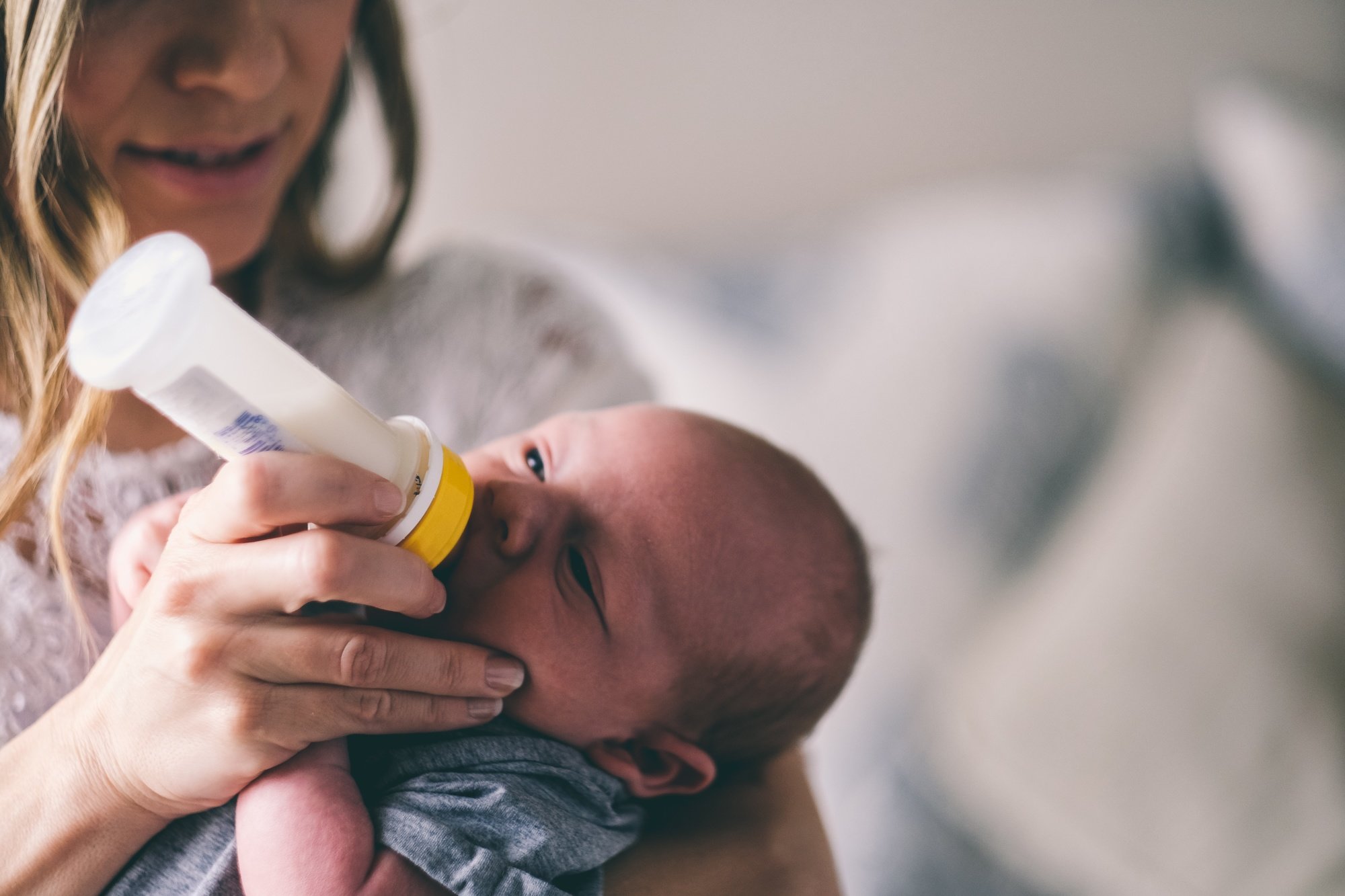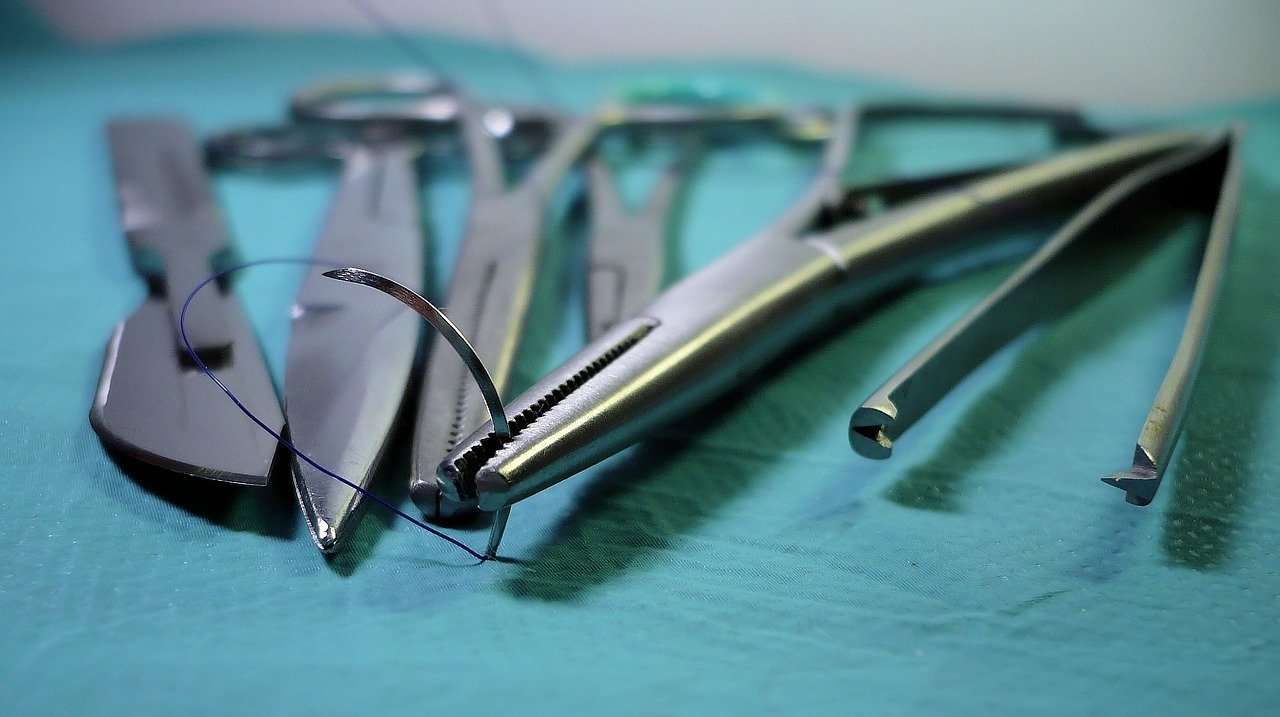Of course, we all want to have healthy, happy, fulfilling sex lives, but recent surveys show that many women are struggling to even have comfortable sex. A survey recently published in BJOG: An International Journal of Obstetrics and Gynecology found that almost 7,000 women in the UK experience pain during sex. Sadly, this isn't exactly news.
Nearly three out of four women have pain during intercourse at some time during their lives, according to the American College of Obstetricians and Gynecologists (ACOG). And challenges associated with childbirth — stemming from anything from hormonal shifts to scar tissue — can lead to painful sex for new moms specifically. (As if new parenthood wasn't tough enough!)
Thankfully, identifying the root cause and right fix can go far to feeling — and getting it on — better.
Here, 10 common causes of painful sex, and what experts say they advise their patients who are grappling with the same challenges.
Breastfeeding

If you're experiencing painful sex while breastfeeding, you're not alone. "Breastfeeding down-regulates the usual signaling the brain uses to tell the ovary to make estrogen," explains Anate Brauer, MD, a reproductive endocrinologist at Greenwich Fertility in Greenwich, Connecticut, and the New York University School of Medicine. Because estrogen helps keep the vaginal tissues healthy and lubricated, too little of the hormone can lead to dryness.
The fix:"Vaginal dryness due to breastfeeding will subside, usually once periods resume," Dr. Brauer explains. In the meantime, you can try vaginal moisturizers or lubricants. "[Vaginal moisturizer] Replens is actually ideal in this scenario," says Mary Jane Minkin, MD, clinical professor of Obstetrics, Gynecology and Reproductive Sciences at Yale University School of Medicine, and author of A Woman's Guide to Sexual Health. "It's inserted two to three times a week. It is also a good idea to use a good silicone lubricant, such as Wet Platinum or Replens Silky Smooth."
Vaginal infection

One of the most insidious causes of painful sex can be a run-of-the-mill vaginal infection, like a yeast infection or bacterial vaginosis (BV), says Dr. Minkin — being that something as common as eating too much sugar, stress, or PMS can affect your vaginal pH, leading to yeast or BV. Both types of infections are associated with inflammation of the vulvar and vaginal tissues, and, in turn, can lead to painful sex.
The fix: Dr. Minkin recommends a product like rePHresh, which is said to balance vaginal pH and moisturize the vagina as well. Target probiotics (like Garden of Life RAW Probiotics Vaginal Care, $29.49, Vitacost) can also help get your pH in check. And if you're looking for a soothing lubricant that won't further irritate the vagina and may even help address your symptoms, try coconut oil, which is also said to have antibacterial and antifungal benefits.
Postpartum perineal pain

If you experienced an episiotomy or a tear during childbirth, you should be healed anywhere from four to six weeks after delivery. "We encourage women to wait until six weeks postpartum to start having intercourse," says Carolyn Alexander, MD at Southern California Reproductive Center. Even then, you may find sex is uncomfortable. "While vaginal tissue is generally very resilient and heals well, estrogen deprivation slows this healing down," Dr. Brauer explains.
The fix:"Estrogen creams, in addition to lubrication in attempts to speed up the healing process," says Dr. Brauer. Other tips: Do your best to relax, leave enough time for plenty of foreplay (to promote your own natural lubrication), and reach for a water-soluble lubricant. If these measures still don't help after a couple more weeks, you may want to see your health care provider and consider pelvic rehab therapy or Kegel exercises, which can help over time.
More from CafeMom: Why a C-Section Could Ruin Your Sex Life
Postpartum muscle spasms

Your pelvic floor muscles can tighten after giving birth (even in the case of C-sections) and lead to muscle spasms that make penetration, or even insertion, difficult or painful. The medical term for this is vaginismus.
The fix: "Vaginsimus is best treated with a detailed history and physical by the ob-gyn, as well as the help of a good pelvic physical therapist who can tailor the treatment plan with the partner," explains Dr. Alexander.
Psychologically triggered vaginismus

If you haven't given birth recently but are experiencing painful sex linked to involuntary muscle spasms, it's possible there's a psychological component at play. That's why seeing a health care provider is so helpful to teasing out the exact cause and best treatment of vaginismus.
The fix: "If there is a significant psychological component, behavioral therapy and biofeedback can be used in conjunction with physical treatment," says Dr. Brauer.
Tipped uterus

Whether due to aging, childbirth, or scarring from adhesions as a result of endometriosis or fibroids, the uterus can shift to a tilted or retroverted position. In fact, about 30 percent of women have a tilted uterus. The primary symptoms are pain during your periods, and yep, painful sex, particularly when you're engaging in deep penetration with your partner.
The fix:"With retroverted uterus, it may be the case that certain sexual positions may feel less painful than others," says Dr. Alexander. Shoot for ones that allow for more control (like girl on top) or shallower penetration (like spooning).
More from CafeMom: What Really Happens to Your Vagina After Giving Birth
Endometriosis

"Endometriosis is defined as tissue from the lining of the uterus growing outside of the uterus and can lead to deep pelvic pain during intercourse," explains Dr. Brauer. A recent study out of Italy found that more than half of all women who suffer from endometriosis experience intense pain during sex, and worse, women tend to have a tough time talking about this with their partners or even their doctors.
The fix: Certain positions can be more comfortable than others. Missionary is one to avoid, because the uterus is tilted at its most posterior in that position. On the other hand, you could try side-to-side or doggy-style. You may also find that having sex at different points during your cycle (like from the last day of your period until just before ovulation, when mid-cycle pain may occur) is more comfortable.
More from CafeMom: Real Talk: What It's Really Like to Live With Endometriosis
Skin disorders

Whether you're irritated by a new shower gel, perfumed soap, or even a lubricant, an acute case of contact dermatitis can lead to irritated sensitive vulvar tissues. The vulva can also be affected by chronic skin disorders like eczema. Obviously, being inflamed and itchy "down there" can affect your comfort during intercourse.
The fix: Treatment depends on which disorder you're dealing with, so you'll do best to see your doctor to figure out exactly what's going on. Most likely, you'll be prescribed a topical corticosteroid ointment and require time to heal up before getting it on again.
C-section scar

Common thinking may lead us to believe that if you deliver vaginally, sex may be more uncomfortable after giving birth. But a 2015 study from the Murdoch Children's Research Institute in Australia actually found women who had given birth via C-section were twice as likely to experience painful sex 18 months after birth compared to women who had spontaneous vaginal births. This may be linked to scar tissue that forms as the incision heals and that can cause the muscles nearby to refer pain to areas like the clitoris.
The fix: You may want to talk to your doctor about scar tissue release therapy, which is used to break up adhesions, where the scar tissue has attached to ligaments or to the uterine wall.
More from CafeMom: The Real Reason Women Should Do Their Kegels
Vulvodynia

Defined as chronic pain in the area around the opening of your vagina for which there is no identifiable cause, according to the Mayo Clinic, vulvodynia may cause pain, burning, or irritation that doesn't occur only while you're having sex. It can even affect sitting for long periods of time. Contributing factors may include injury to or irritation of the nerves surrounding your vulvar region, past vaginal infections, allergies or sensitive skin, or hormonal changes.
The fix: Most treatment revolves around addressing symptoms and depends on what your doctor suspects the root cause to be. Biofeedback can help you relax your pelvic muscles, as could pelvic floor therapy involving vaginal dilator therapy.




